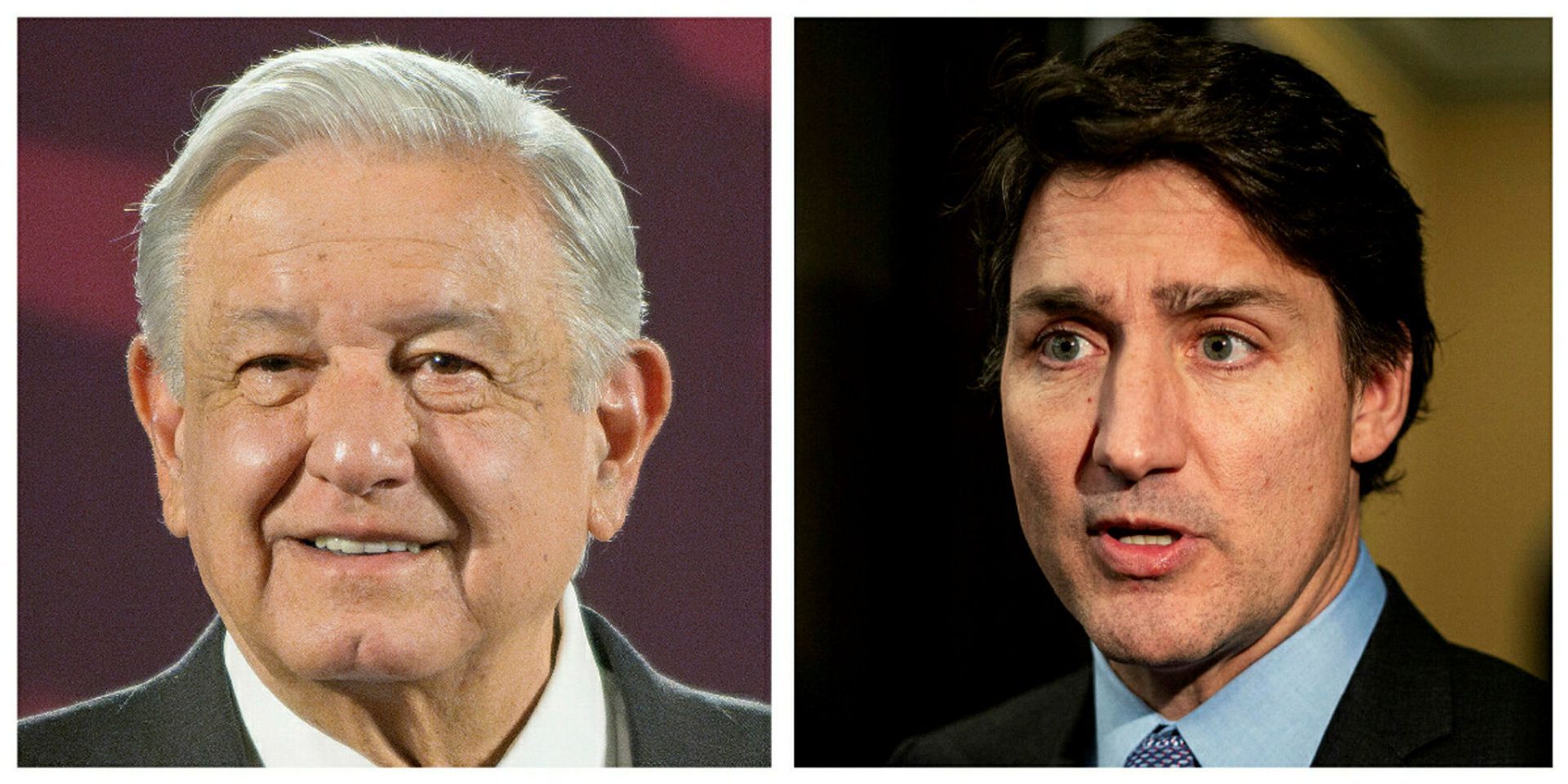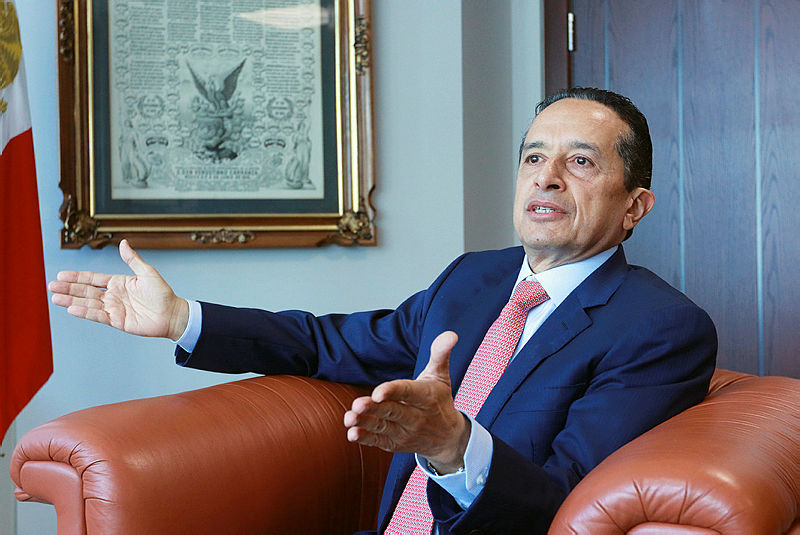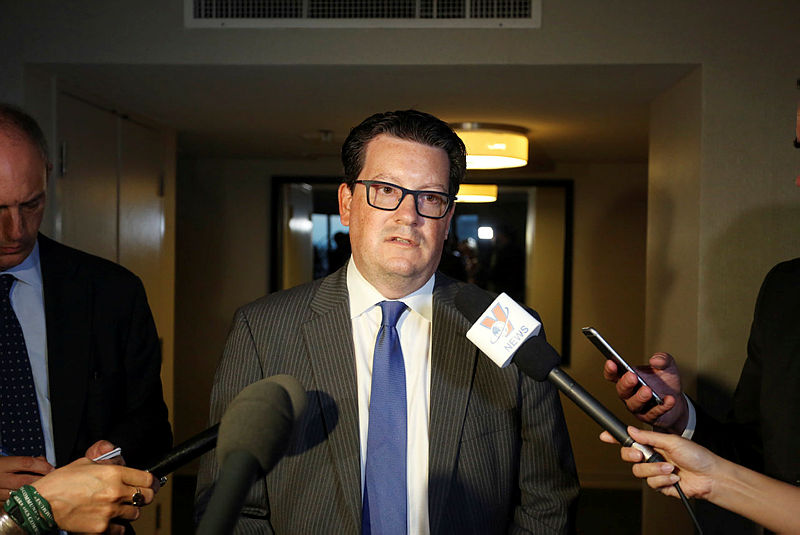Mexico’s diplomatic pause likely to be short-lived as North American ties will trump discord, say analysts

With mere weeks remaining before incoming Mexican president Claudia Sheinbaum takes power, former diplomats expect Canada to face a short-lived interruption in ambassadorial outreach following current President Andrés Manuel López Obrador’s announcement of a pause.
López Obrador, commonly referred to as AMLO, said he would be pausing relations with the Canadian Embassy—as well as the American mission—in Mexico City following foreign criticism of Mexican judicial reform efforts.
López Obrador is attempting to make over his country’s judiciary by enacting a change to have judges elected by popular vote, arguing the overhaul is needed to address corruption.
The diplomatic discord takes place less than two years from when the three countries will undertake a mandated review of the Canada-United States-Mexico Agreement (CUSMA). But López Obrador will hand the presidency over to Sheinbaum on Oct. 1.
Trade consultant Eric Miller, a former diplomat at the Canadian Embassy in Washington, D.C., said López Obrador’s response is akin to a brushback pitch in baseball where the batter must shift to avoid being hit.
“What AMLO is doing is he’s not looking to break the relationship, but he’s looking to make clear that there’s concerns,” said Miller, now president of Rideau Potomac Strategy Group.
Canadian Ambassador to Mexico Graeme Clark said during an Aug. 22 event that investors have issues with the proposed judicial reforms.
“My investors are concerned, they want stability, they want a judicial system that works if there are problems,” he said, according to a Reuters report. But he added that Canada and Mexico have “excellent relations.”
U.S. Ambassador to Mexico Ken Salazar called the reforms a “major risk to the functioning of Mexico’s democracy.”
Miller said there is added concern for Canadian investors in Mexico since when CUSMA replaced NAFTA, it removed an investor-state dispute settlement (ISDS) system.
ISDS regimes allow companies to sue governments in arbitration if there is a regulatory change that threatened their investment holdings. Now, those same companies have to take their case to domestic courts.
“[There could] be concerns about what does this mean [for] domestic courts to the extent they get involved in commercial transactions,” Miller said.
“Analysts of Mexico have growing concerns about some of the rules of law challenges that exist in Mexico, and there’s a sense that if you have elected judges then the ability to influence those judges could be greater,” he said.

Miller said there have never been periods where there wasn’t at least some sort of tension in the relationship between Canada, Mexico, and the U.S.
As Mexico started its diplomatic recess with the Canadian and American embassies, the U.S. launched a long-awaited dispute settlement regarding Canada’s digital services tax.
Miller said the fact that Mexico didn’t expel ambassadors is notable, and shows a more proportionate response by López Obrador.
“Kicking out the ambassador would bring a true crisis in the relationship,” he said. “[Now] that the ambassadors can stay, and relations with the embassy were put on pause, and so what that means is as things evolve over time, those relations can be quietly unpaused.”
Former diplomat Louise Blais, who served twice as Canada’s consul general in Atlanta, said a pause in relations with an embassy is standard practice to register disapproval.
“This is not unusual, per se,” she said, but added that López Obrador has drawn more attention through his public announcement. “It really [was] just a way to tell mostly the Americans—but he lumped us in—to say, ‘Just buzz off. This is a purely domestic matter.’”
“It’s a signal more than anything,” she added, remarking that she thinks the pause will be short-lived.
“This is a lot of hot air,” she said, noting that she hopes the issue will be resolved by the time Sheinbaum takes over the presidency. “Otherwise, it will be a big first test of foreign policy for her.”
Blais said it’s always a tricky predicament when diplomats speak about another country’s domestic affairs.
“It’s one thing to advocate on behalf of your country,” she said. “But it’s another to actually say, ‘What you’re doing domestically is problematic.’ It’s always more difficult to make those kinds of comments in country, and in public. It’s all those things that have irked the Mexicans, and López Obrador in particular.”
Blais compared the incident to how Canada objects to any comments from foreign officials and diplomats regarding Quebec sovereignty.
She said López Obrador’s choice to institute a pause is “pretty soft,” while not defending the decision.
She added that it’s a chance to look at how Canada is passing messages to its host countries about any concerns it might have.
“[It] probably would be best done in person, through diplomatic channels, and maybe we really have to weigh very carefully how much we’re going to put a country on the spot in their country,” she said.
Blais said there is too much positive in the Canada-Mexico relationship to allow any discord to persist.
“You cannot let one element like this overtake [the economic relationship],” she said. “We have enjoyed warm relations, so I expect that this is a blip, and a moment in time that will get softened through skillful diplomacy over the next week or two, so that we can get back to business.”
During the NAFTA renegotiations, many observers looked at Canada and Mexico as having an opportunity to present a united front to buttress against being steamrolled by the desires of the U.S. administration. In the end, that hope didn’t live up to reality as Mexico and the U.S. carved out a preliminary renegotiated deal, and Canada was given the option to sign on.

Future Borders Coalition executive director Laura Dawson, an expert on North American relations, said the Canada-U.S.-Mexico trading relationship is not a tripartite one, but rather dual bilateral relationships: one between Canada and the U.S., and the other between the U.S. and Mexico.
She said in the 2026 CUSMA review, the three countries will likely strive to work together as long as possible, but sooner or later, it will break down into issues in the dual bilateral relationships.
Dawson said that at that point, it will become a very advantageous position for the U.S., but less so for Canada or Mexico.
“So, if we learned anything from the CUSMA negotiation last time around, as far as possible, [it is better for Canada] to avoid situations where the U.S. can divide and conquer,” said Dawson, a Canadian who has previously served as a senior economic adviser in the U.S. Embassy in Ottawa.
“If you are in a divided environment … don’t burn your bridges with the other party. Try to maintain a strong channel of communications, and goodwill relations between Canada and Mexico throughout the process because if you end up with a situation of Canada throwing Mexico under the bus on this, or Mexico throwing Canada under the bus on another thing, it means that there is no opportunity for Canada and Mexico to join together on joint interest,” she said.
Dawson said that will require a lot of will and intention on the part of Canada and Mexico because there aren’t too many issues where Canada shares the Mexican position as opposed to the U.S. position.
She said that Mexico holds far more influence in the U.S. due to its economic impact in large U.S. states, like California and Texas, as well as being a volatile market, whereas Canada remains a consistent market that will always be present in the U.S. trading relationship.
“With Canada, you treat us well [or] you treat us badly, we’re still going to be a pretty reliable trading partner,” she said, remarking that Mexico has more leverage, especially around the treatment of its border with the U.S. to extract better outcomes from the Americans.
nmoss@hilltimes.com
The Hill Times






 LICENSING
LICENSING PODCAST
PODCAST ALERTS
ALERTS













